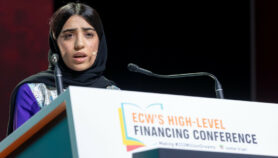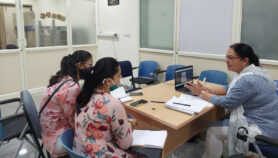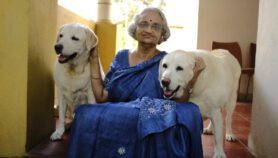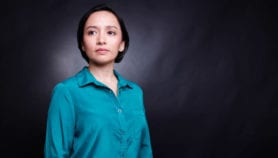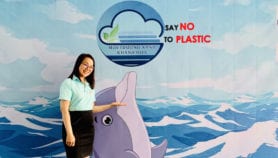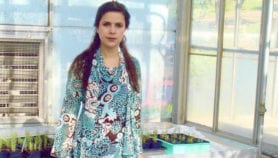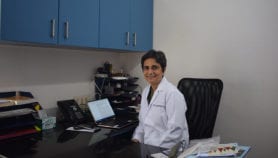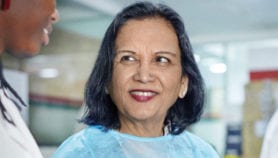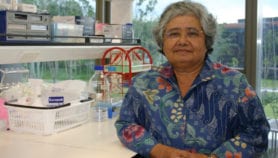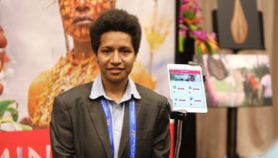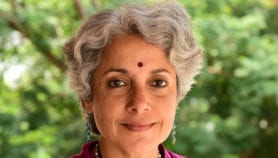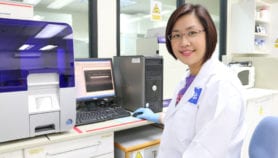28/12/21
Bringing light to remote areas
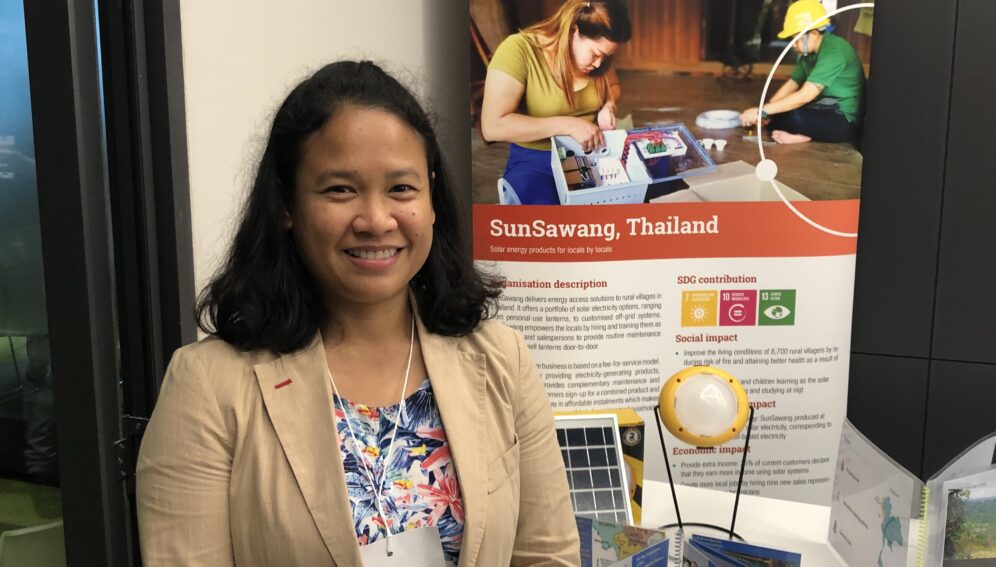
By: Tess Raposas
Send to a friend
The details you provide on this page will not be used to send unsolicited email, and will not be sold to a 3rd party. See privacy policy.
Salinee Tavaranan empowers remote communities on the Thai-Myanmar border by building renewable energy systems for them.
[MANILA] Salinee Tavaranan believes that science and technology should be accessible to those living in remote areas. Her work providing renewable energy to rural communities and training them to run the systems gave her the opportunity to turn her belief into reality.
After completing her masters in solar energy engineering at the University of Massachusetts Lowell, she returned to Thailand as the director of an NGO that provides renewable energy clusters to refugees and underprivileged communities living along the Thai-Myanmar border.
“You do not have to be the best or have good grades to be successful. You just need to be able to learn, adjust, develop, and impart learnings to others.”
Salinee Tavaranan
Realising that building solar power systems through donations is ineffective, Tavaranan founded SunSawang, a social enterprise that manages and maintains solar energy systems. Her organisation promotes sustainable management by hiring and training local technicians to take care of repair and maintenance.
In recognition of her efforts, Tavaranan has received numerous awards and citations, including the Cartier Women’s Initiative award, BBC’s 100 Women, Asia Foundation Development Fellow, Clinton Global Initiative commitment maker, and the PopTech Social Innovation Fellowship.
Salinee Tavaranan at PopTech 2010. Video credit: PopTech.
How did you start out in engineering? How did people react to your choices?
When I was 14, I attended a basic electrical workshop course. This course made me want to study mechanical engineering for my bachelor’s and solar energy engineering for my master’s degree. In the beginning, my parents, particularly my father, did not approve of my taking up an engineering course because there were few women in this field. I convinced him that engineering was what I really wanted to do. After that, he fully supported my studies, even while I was studying for my master’s abroad.
There are countless stories about the difficulty that women face in breaking the glass ceiling in science, technology, engineering and mathematics (STEM). Can you share your experience of this?
It is a challenging experience to be in the engineering field. Doing my master’s in solar energy engineering in the US, I was the only Asian woman who was hired for an internship at a solar panel manufacturing company. There was a lot of pressure to do well but I worked hard and received support from my boss. My internship there produced good results particularly in helping to create changes in the manufacturing process. I was offered another internship with the same company afterwards.
As an engineer and a social entrepreneur, could you share with us your thoughts about women’s participation in solar energy use and management in the communities you work with?
In 2013, I founded a social enterprise [SunSawang] to provide solar power systems for rural villages in Thailand and expanded our projects towards the Myanmar area. I would like that, in the future, our social enterprise projects will be able to install solar mini-grid systems around the villages in that border area.
In my experience, there are fewer women who participate in solar power systems trainings – about 20 per cent or less. Most of them learn quickly on related topics and are more thorough about the maintenance part. In the beginning, some women might be afraid to touch the equipment but when they learn more about it, they are more confident to do the job, to maintain the equipment as well as document the system data. The men, however, show more confidence during the training. They are more eager to learn the hands-on part and to perform the installation. Be that as it may, we encourage more women to participate in the trainings.
Based on your experience, can you briefly explain why you believe social enterprise is important in the use of green energy?
We offer solar energy to the communities and the communities pay for the electricity and maintenance services. When people pay for something, they put more value to it and ensure that it continues to be useful, running and operating. Previously, when we offered solar energy to the communities for free they did not value it and left it broken after using it for some time.
Social enterprise ideas are important because [having the enterprise] gives them a sense of responsibility and ownership. They make the projects and products sustainable and the organization more sustainable by not depending on grants or donations.
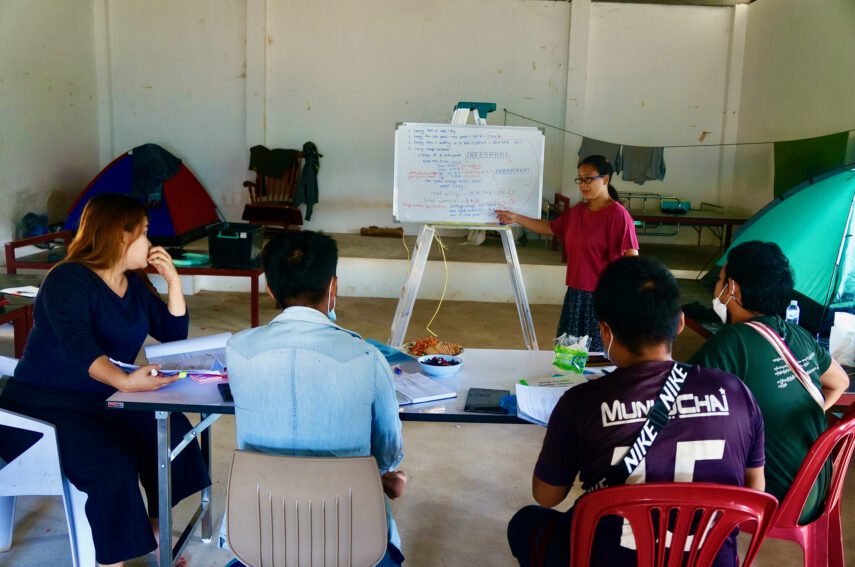


Salinee Tavaranan gives a talk on how to design, use and maintain a solar-powered system for a COVID-19 emergency response center or hospital. Photo credit: Worapon Haekawee.
Many young girls look up to you as an engineer who brought light to dark corners of the world. What would you advise them when it comes to career paths and choices?
If you know what you want to be or do, go for it and stick with it. It will not be easy. It will be challenging but the journey is well worth it. There will always be challenges, no matter what you do. However, these challenges will help you to learn, grow and develop as the person you want to be. You do not have to be the best or have good grades to be successful. You just need to be able to learn, adjust, develop, and impart learnings to others. It doesn’t only apply to science or engineering but in other fields as well.




